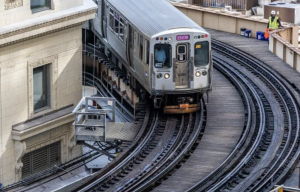House OKs graduated income tax
Illinois voters will get to vote in 2020 on how they want their income taxed after the Illinois House of Representatives passed a joint resolution constitutional amendment on Memorial Day that puts the graduated income tax on the ballot.
The tax system is a cornerstone of Democrat Gov. JB Pritzker’s plan to improve Illinois’ financial condition, with estimates showing it would raise about $3.57 billion in revenue.
“For years, Illinoisans have been fighting to make our income tax system more fair to middle class families and those striving to get there, and this monumental vote in the General Assembly means that voters will have the right to decide our system for themselves in November 2020,” Pritzker said.
The graduated income tax would tax varying levels of income at different rates. The amendment provides that “lower rates apply to lower income levels and higher rates apply to higher income levels.”
Currently, Illinois has a constitutionally-mandated flat tax structure, meaning all income is taxed at the same rate of 4.95 percent.
Seventy-three House Democrats voted for the amendment, with all Republicans opposed. One Democrat did not vote.
Among those voting “yes” was Rep. Nathan Reitz (D-Steeleville), who was recently appointed to replace graduated income tax critic Jerry Costello II.
“I’ve made it very clear that my goals have been providing much needed tax relief to middle-class and working families as a driver to leverage our economy, create new jobs and protect critical access to health care,” Reitz said. “There has been a lot of misinformation on both sides of this issue, but when you put that aside, the reality is that this plan puts us on a path to provide modest tax relief for a majority of Southern Illinoisans. That includes 99.6 percent of residents in the 116th district that would see relief or no change in their taxes.
“This amendment simply allows voters to make the first decision if our state should change its tax structure. When we talk about investing more in our local communities, our schools, our social services, the fair tax plan deserves to be part of that conversation.”
The Illinois GOP slammed the House for passing the measure, arguing it would incentivize job creators to leave the state and warning that taxpayers do not trust Democrats to spend wisely.
“Raising taxes yet again and asking for more from the most overtaxed group of people in America is not a solution to our problems, it unfairly punishes taxpayers for problems they did not create,” Illinois Republican Party Chairman Tim Schneider said. “We need to reform the way we do government in Illinois before ever thinking about taking more from our hardworking families.”
The Illinois Senate passed the amendment on May 1, again with only Democrats in favor of it.
State Sen. Paul Schimpf (R-Waterloo) voted against the measure.
“Changing our taxing structure, without providing a means to limit spending or make it more difficult to raise taxes in the future, solves nothing. In fact, this plan will most likely only lead to more tax increases and higher spending in the future,” Schimpf said at the time.
The change is far from a done deal, however, as three bills detailing the particulars of the proposal have not yet come up for a vote in the House after passing the Senate. The most important of those is Senate Bill 687, which, among other things, sets the tax rates.
It requires those who file a tax return as single pay 4.75 percent on taxable income up to the first $10,000; 4.9 percent on income between $10,001 and $100,000; 4.95 percent on income between $100,001 and $250,000; 7.75 percent on income between $250,001 and $350,000; 7.85 percent on income between $350,001 and $750,000; and 7.99 percent on all income if a single filer makes over $750,000.
For joint filers, the same rates apply but they cover different ranges.
The 7.75 percent rate is on income between $250,001 and $500,000; the 7.85 percent rate applies to income between $500,000 and $1 million; and joint filers making over $1 million pay 7.99 percent on all income.
The bill also raises the corporate tax rate from 7 percent to 7.99 percent.
In addition to the graduated income tax bills, the Legislature has issues like legalizing recreational marijuana, legalizing sports betting, passing a capital plan and approving a budget still to tackle.
Friday is the final day of this legislative session.






